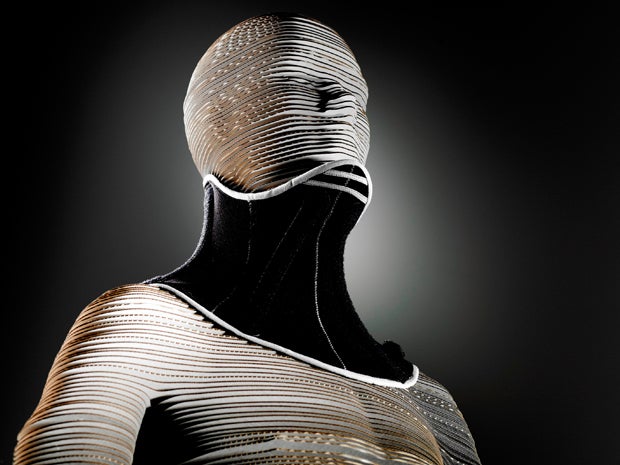Health professionals create a design for life
In partnership with Sheffield Hallam University

A team at Sheffield Hallam has designed a revolutionary new neck brace that could transform the lives of Motor Neurone Disease (MND) patients.
The Motor Neurone Disease Association approached the University after patients complained that current collars didn’t allow sufficient movement – which is vital to slow down muscle wastage – or adequately support the head. Many patients also found them uncomfortable, bulky and visually unappealing.
Designers and researchers at Sheffield Hallam University have a reputation for creating innovative solutions to problems in the fields of healthcare and product design so a team from both disciplines, plus Sheffield Teaching Hospitals and the University of Sheffield, came together to try and invent a new neck collar that worked for MND patients, addressing their concerns around movement, support and comfort.
The team included a consultant neurologist, a physiotherapist, an occupational therapist, a nurse, a group of patients and carers, and a design team made up of industrial designers, a design engineer, a materials engineer and a fashion designer.
Sheffield Hallam design engineer and lead researcher Dr Joseph Langley says: "We were shocked to discover that none of the occupational therapists or physios had ever tried on the collars that they were prescribing.
"So everyone in our design team spent eight hours in each of the existing collars. And when we found out that none of the clinicians had worn them either, we got them to wear them too, and record where they found discomfort and pain.
"The clinicians were surprised that the aesthetic element was really important to the patients. They thought the support would be enough, but it wasn't. The patients wanted it to look appealing as well."
After trying the collars for themselves, the team spent time making different models with the patients and clinicians and trying out different designs. Then one day, one of the Sheffield Hallam project team, principal industrial designer Heath Reed, spotted his daughter’s hair curlers. It was the lightbulb moment.
Dr Langley says: "You can bend [the hair curlers] into the shape you want and they will hold that shape. We realised we could produce several different types of these which you could plug into the collar to change the level of support. This was the key moment in the design process."
The team's final design – the Sheffield Support Snood – was adaptable, flexible, provided lots of support, and meant patients could wear clothes over it.
The next step was to test it with the patients. They gave a snood to 20 patients for a month, and sought feedback.
Among the test patients, there was a massive upsurge in using the collar. Across the board, patients reported wearing it for two hours a day, or four, or six – and in one case 10 hours a day.
MND patient Moya Briggs says: "I put the collar on and I could feel the relief in my neck. I'm looking forward to being able to turn my head and talk to people naturally."
The snood has now met the stringent legal requirements for a medical device, meaning it has a CE mark – an important green light towards being prescribed by doctors.
And following the success of the initial trial, the team are now producing 100 snoods to give to MND patients in order to gather a broader range of feedback.
The potential impact is enormous. As well as improving the lives of patients with MND, it could also be used by people with conditions like muscular dystrophy, multiple sclerosis, or arthritis – conditions affecting millions of people across the world.
For more information: Click here
Subscribe to Independent Premium to bookmark this article
Want to bookmark your favourite articles and stories to read or reference later? Start your Independent Premium subscription today.

Join our commenting forum
Join thought-provoking conversations, follow other Independent readers and see their replies